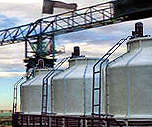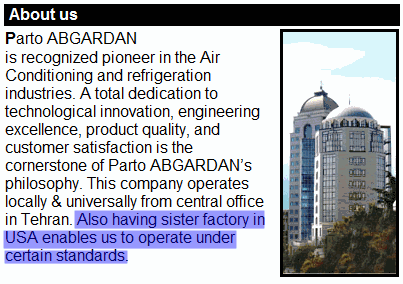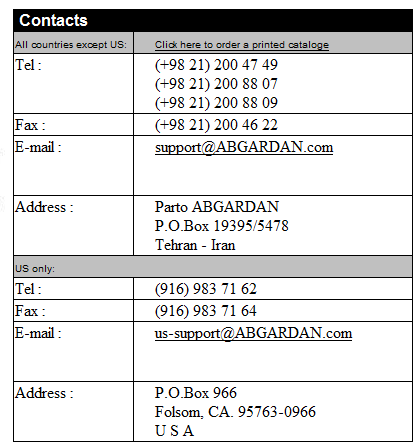 Aqua Loop Cooling Towers, a California-based supplier of cooling equipment to power plants, recently agreed to a ten-year denial order and a $100,000 fine to settle charges by the Bureau of Industry and Security (“BIS”) arising out of charges of illegal exports of, and a conspiracy to export, EAR99 goods to Iran. The items involved were filament winding machines and rolls of hog hair filter media. (For those perplexed about exports of hog products to a Muslim country, hog hair filters are not made from hog hair, at least they aren’t anymore.)
Aqua Loop Cooling Towers, a California-based supplier of cooling equipment to power plants, recently agreed to a ten-year denial order and a $100,000 fine to settle charges by the Bureau of Industry and Security (“BIS”) arising out of charges of illegal exports of, and a conspiracy to export, EAR99 goods to Iran. The items involved were filament winding machines and rolls of hog hair filter media. (For those perplexed about exports of hog products to a Muslim country, hog hair filters are not made from hog hair, at least they aren’t anymore.)
More interesting than the charges themselves and the agreed settlement is the unusual amount of detail that BIS put into the charging letter and the associated documents. Typically a charging letter says, for each count, that on A date B company violated C rule by exporting item D, classified as ECCN 0X000, to country Y. Each count rarely exceeds a short paragraph. In this instance, the Charging Letter, while many pages short of the length of, say, Marcel Proust’s À la recherche du temps perdu, is quite detailed and, certainly, a step in the right direction. Greater detail in charging letters provides more notice to the export community as to how BIS interprets its own regulations.
The charging letter tells a story of a contact made by Parto Abgardan, a Tehran-based manufacturer of cooling towers, with Aqua Loop to procure items for shipment to Tehran. The president of Aqua Loop replied that he was “more than happy if I can be of assistance on your purchase of filament winding machines.” Upon contacting a distributor of those items, the Aqua Loop president reported back:
I should emphasize that I found this lady a bit reluctant on the subject of export the unit [sic] to Iran, but she sound [sic] OK to work with us, if we do not mention any thing [sic] about Iran.
Later Aqua Loop’s president reported that the only way he could get the items to Iran was through a Gulf state:
I am trying to find a way to send the components that I promised to you. Unfortunately after many unsuccesssful [sic]attempts, I came to a conclusion that the only was to open this channel is what you were thinking, and if I understood correctly, you are going to have some kind of agent or office in one of the Gulf countries. I tell you this that I would have no problem getting a container to my place and loading to a steam ship toward Dubai. . . . Many shipping companies express that you shouldn’t have any major problem getting the goods to Tehran from Dubai
Finally, the charging letter notes that Aqua Loop’s president had told a BIS special agent that he was aware that it was illegal to ship goods to Iran through third countries, noting that the practice was called “diversion.” Not surprisingly, the Aqua Loop president agreed individually to a ten-year denial order and a $100,000 penalty suspended for ten years provided that no export violations were committed by him during that period.
If you clicked on the link earlier in this post to Parto Abgardan’s website (which appears only to work in Internet Explorer and not to work in either Firefox or Chrome), you may have noticed something interesting. Abgardan claims to have a “sister factory in the USA.” Here’s a screen grab (with highlighting added by me) showing that claim.

And on its website Abgardan gives as its U.S contact information the same address, telephone number and fax number as shown on Aqua Loop’s contact page. Here’s another screen grab if your browser doesn’t like Abgardan’s website:

I would have thought they would have changed that by now.
 Permalink
Permalink
Copyright © 2010 Clif Burns. All Rights Reserved.
(No republication, syndication or use permitted without my consent.)

 Posted by
Posted by  Category:
Category: 

